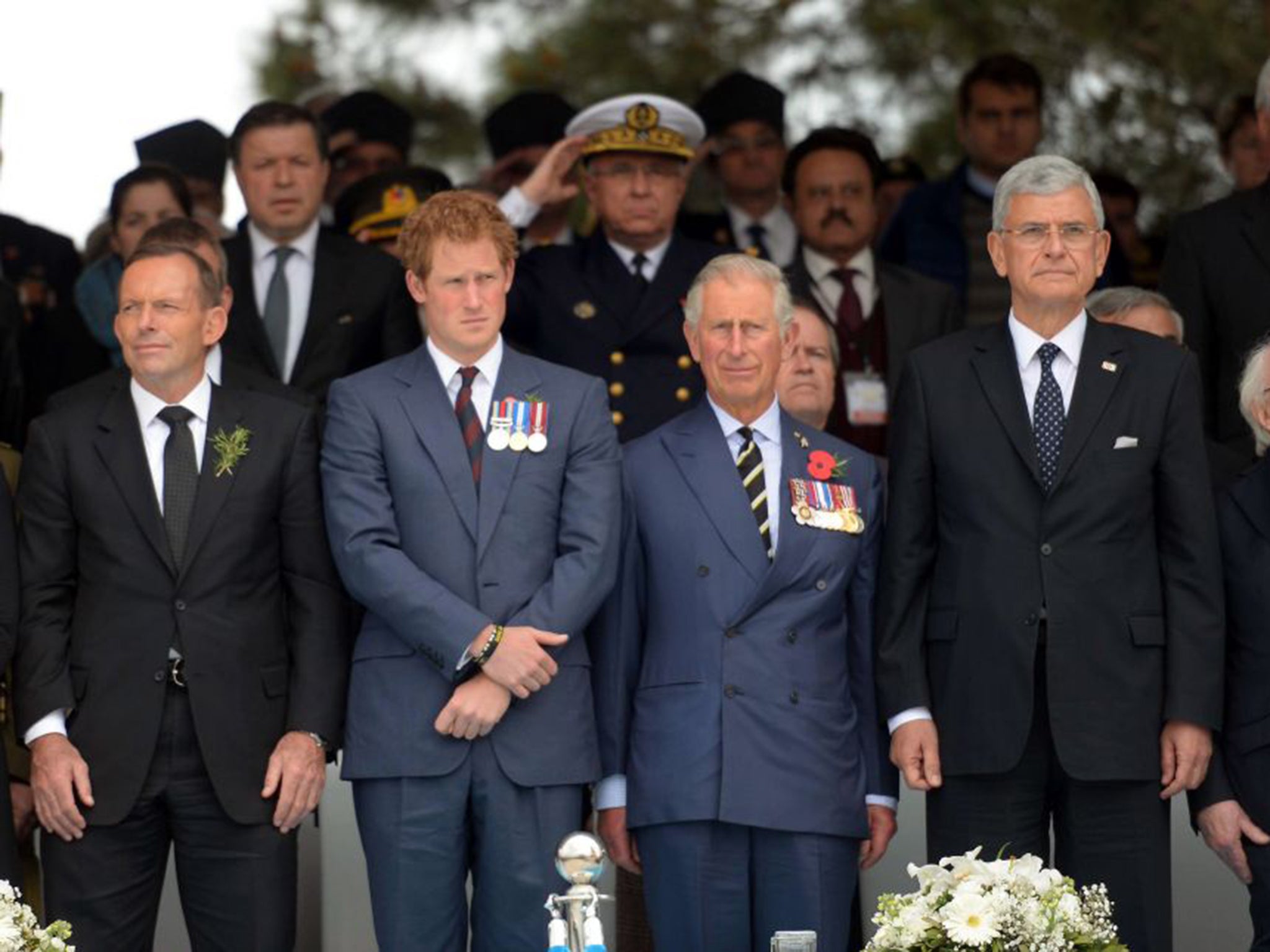Gallipoli centenary: The world unites in homage to the fallen Anzacs
Leaders and dignitaries attend ceremonies marking the 100th anniversary of the opening of a campaign that helped shape three nations

Your support helps us to tell the story
From reproductive rights to climate change to Big Tech, The Independent is on the ground when the story is developing. Whether it's investigating the financials of Elon Musk's pro-Trump PAC or producing our latest documentary, 'The A Word', which shines a light on the American women fighting for reproductive rights, we know how important it is to parse out the facts from the messaging.
At such a critical moment in US history, we need reporters on the ground. Your donation allows us to keep sending journalists to speak to both sides of the story.
The Independent is trusted by Americans across the entire political spectrum. And unlike many other quality news outlets, we choose not to lock Americans out of our reporting and analysis with paywalls. We believe quality journalism should be available to everyone, paid for by those who can afford it.
Your support makes all the difference.Leaders and dignitaries from Australia, New Zealand and Turkey joined thousands of people at dawn ceremonies on Turkey’s Gallipoli Peninsula, marking the 100th anniversary of the opening of an eight month campaign that helped shape all three nations.
In front of more than 10,000 people, Australia’s premier Tony Abbott, New Zealand Prime Minister John Key and the Prince of Wales laid wreaths while bagpipes played at Anzac Cove, just north of the landing sites. Mr Abbott told the crowd, many of whom had spent a cold night in their sleeping bags to secure a good spot, that: “We believe the Anzacs [Australian and New Zealand Army Corps] represented Australians at our best... it’s the perseverance of those who scaled the cliffs under a rain of fire. It’s the compassion of the nurses who attended to the thousands of wounded. And it’s the greatest love anyone can have: the readiness to lay down your life for your friend.”
“To us, Gallipoli is also a byword for the best characteristics of Australians and New Zealanders, especially when they work side by side,” added Mr Key. Prince Charles spoke about soldiers who were “tormented by the thought of their comrades being left behind” and that their graves would remain unvisited. Only 11,000 are remembered by graves on the peninsula, others have had their names inscribed on memorials there.
In Ankara, the mausoleum of Mustafa Kemal Ataturk, who fought at Gallipoli before going on to lead post-Ottoman Turkey, was left open through Friday night and into Saturday allowing thousands of visitors to pay their respects.
In Sydney, tens of thousands were at Martin Place, and military pipers played just streets away from where an Islamist gunman and two of his hostages were killed last year.
In New Zealand, the Auckland Museum estimated a turnout of 30,000 people for that city’s dawn services.
In France, during a dawn service at the Australian National Memorial in Villers Brettoneux, government minister Pascale Boistard said “French people will never forget those who came to fight at their side on their soil.”
Reuters; AP
Join our commenting forum
Join thought-provoking conversations, follow other Independent readers and see their replies
Comments